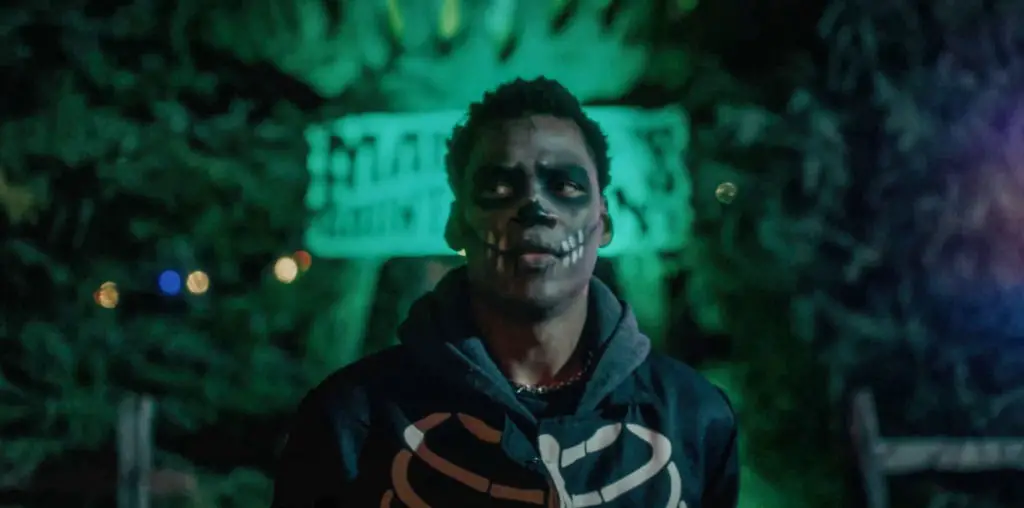
Someone once defined “class” to me as the ability to cause the most tension in the shortest amount of time possible. Anyone who’s worked in retail will understand this definition viscerally — that utter need of the upper crust (or even lower-middle crust) to feel waited on hand and foot, their every whim anticipated and served with a smile. Would you like fries with that, your lordship?
Thus, the issues and relationships in Robert Altman’s newest, “Gosford Park,” still hold a powerful relevance. The film begins with a pheasant-shooting party arriving at the country manor of the film’s title. Crotchety and snarky old bags and sycophantic, nervous servants arrive to very different receptions. Maggie Smith, kicking thespian a*s as the insufferable Countess of Trentham, is proferred umbrellas, open doors and fawning bows, while her servant Mary, played by “Trainspotting”‘s Kelly MacDonald, is sent around the back door in the rain and addressed by her master’s name instead of her own.
The tension mounts beautifully, as servants struggle for position amongst one another “below stairs,” and their betters jockey for favour “above stairs.” The dotty old man, the manor’s owner, carries his little dog to the dinner table and talks nonsense, so important as to have a blank social cheque.
Servants spread gossip to their employers, and there’s as much competition around shooting pheasants and securing big-money handshakes as around which dress to wear (and did the maid wash it properly?) and whom to sit beside at dinner. It all climaxes wonderfully with a shattered Bloody Mary about an hour in, a minor disturbance that hits like a suicide bombing in the horribly stuffy atmosphere Altman has created.
Unfortunately, f*****g fantastic British actors and a lifetime of cinematic innovation cannot save Altman from egocentrism and the first clues to the movie’s collapse come in the guise of Bob Balaban, playing an American film producer, and his movie-star buddy Ivor Novello (Jeremy Northam). It seems obvious that the hypocrisies and nastiness of Hollywood, which Altman skewered in “The Player,” are less worthy of examination than British class struggle and much less interesting than selling his own movie tickets, which he proceeds to do for the rest of “Gosford Park”‘s length.
Novello, as a big-time Hollywood star, takes over the film’s focus for an incredibly long musical session, during which the entire British cast sit in quiet worship – save for Maggie Smith’s anti-populist kvetching. It would be interesting to see the old-school social structures collapsing under Hollywood onslaught, e.g. if Novello danced with a servant it would raise her status forever. But instead, the whole moment serves as backdrop for a (minor key musical hit) murder! Not only a murder, but a murder (louder musical hit, raised eyebrow) with a twist!
Suddenly, the most leaden and uninteresting threads of the film’s first half become the most important elements in the murder mystery. A boringly bumbling cop shows up (where’s Elliot Gould when you need him?), everyone gets questioned, secrets are revealed, etc etc. Had Altman intended a serious formal switchover from British costume drama to Hollywood whodunnit, he should have tweaked the cinematography, the performance styles, the music, and so on, at this point. Instead, the really meaty stuff — relationships, identities, attitudes, and history of the many, many characters (the press kit includes a chart) — is plain old setup. This tragedy is further compounded when, after the identity of the murderer is plainly obvious to all the characters and audience, there’s an interminable period of anticlimactic confrontations and discussions around the solution, and an embarrassing writing-software ending of everyone saying goodbye in their particular idiom. Ugh.
A real drama could have been created if there had been, say, a fatal accident instead — opening the field for blame, recrimination, questions of responsibility, outright lies, study of evidence and procedure, and so on. Even a deliberately faked accident would have let these kinds of class and status struggles continue openly without sacrificing that cheap audience draw, the murder.
As I said, the first half of this is great, including such treats as Camilla Rutherford, reminding me of Helena Bonham Carter when she was baaaaadass. A few seconds of Richard E Grant as the snarky, loafing footman is worth a king’s ransom. Emily Watson, Kirsten Scott Thomas, Clive Owen, and Michæl Gambon are acting their pants off.
Sadly, there are hints of “McCabe and Mrs Miller” here, and Altman’s trademark foreground/background sound tricks, shooting through foggy windows, railings, and general cluttered filmmaking which evokes the complexity of his huge casts. But he seems to be pulling his punches so much that anyone not intensively schooled in his micro-oeuvre would just about miss it all. Overlapping dialogue seems absent, and the Altmanesque chaos so familiar from “M*A*S*H,” “Nashville,” “The Player” etc. dissolves slowly from the first moment, as if any weekend’s events could simplify society.


lol there was absolutely no intention to switch from british drama to whodunnit hollywood drivel, and thank god for that. and f**k, do you go on!